What is elderly care?
What does elderly care involve?
Elderly care is extra support for an older person who wants to continue living at home.
Care for elders covers but is not limited to personal care, domiciliary care, housekeeping services, administering medication and much needed companionship.
Not only does elderly home care give you the reassurance that someone will be there to support in a way that is unique to you, but it also gives your family peace of mind that you are being looked after by local carers who put your needs first.
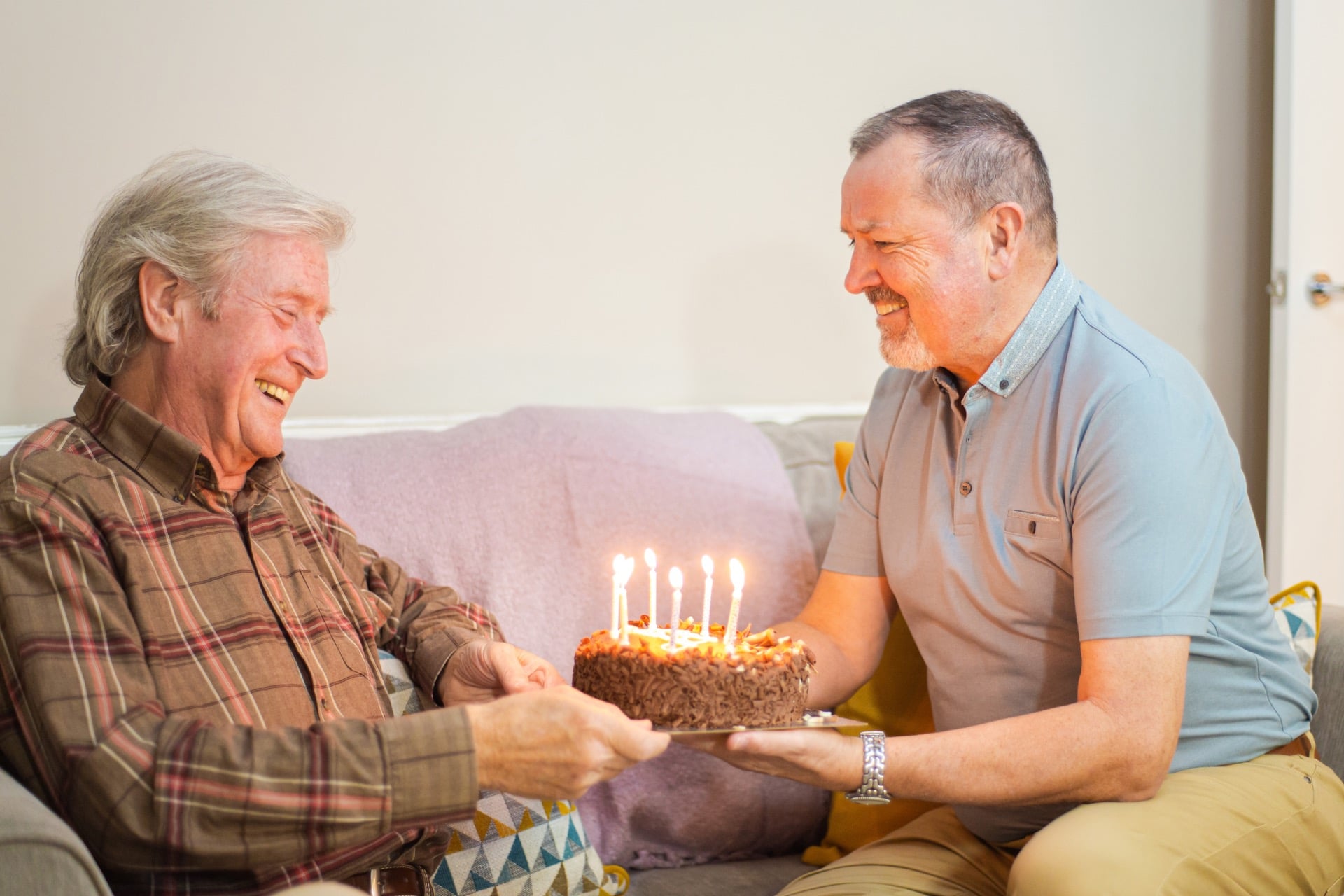
Elderly care at home or residential care?
There are lots of things to consider when you’re thinking about care for yourself or a loved one.
For many, it can be quite a distressing time that comes about suddenly, perhaps after a fall or stay in hospital, where you realise that you need extra support. But needing care doesn’t mean that you have to move into a nursing home – you can receive high quality care in the comfort and familiarity of your own surroundings with elderly home care from Helping Hands.
Opting for home care means that you don’t have the stress and upheaval of leaving your beloved home, partner or spouse or even your pets – you can stay in your own little haven where you have most likely lived for many years, receiving the care and attention you need to stay safe and well.
Below, we’ve listed some of the benefits of staying at home for care:
When is elderly care necessary?
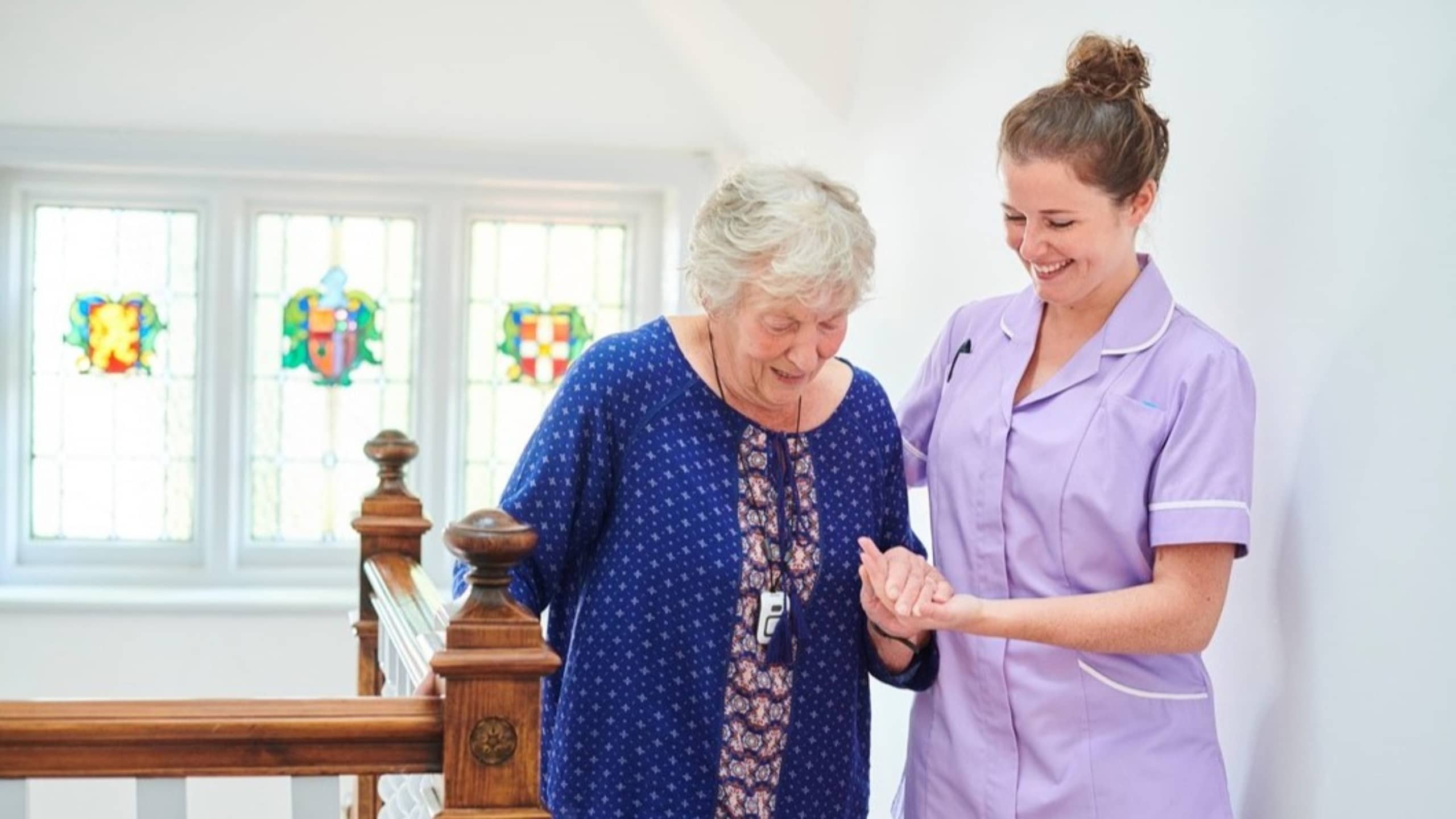
There are lots of reasons people choose care for themselves or elderly relatives.
Some people have time to plan for the future when they know that they might need extra help around the home or getting out and about in the local community, but many tend to have elderly care after their health has declined, both themselves and their spouse need extra support after an illness or their regular caregiver, usually a family member, has realised that they are unable to provide the assistance that their loved one needs.
You might consider elderly care if you need help with:
Housekeeping support
From vacuuming and doing the laundry, to wiping surfaces and washing up, your carer can constantly be on hand to keep your home looking the way you like it
Mobility assistance
All of our elderly carers receive mobility assistance training, so they can help you get into and out of bed and move safely around your home
Condition-led care
Your support is fully personalised to your needs, especially if you’re living with a complex condition and need help with certain routines and areas of life
Preparing meals
Whether you’re following a diet, have a favourite meal you’d like for dinner, or just fancy a cup of tea and a biscuit, your carer can prepare food at the times that suit you
Friendly companionship
We’ll pair you with a carer who shares your personality, hobbies and interests, so that they’re someone you really get on well with and may even become a great friend
Personal care
An elderly carer can help with the everyday care routines you might feel uncomfortable asking a loved one to assist with, such as bathing, toileting and getting dressed
When to discuss elderly care with a loved one
Admitting that you need care can be quite difficult to do for many in their senior years.
A loved one may be quite resistant to the idea of having a stranger in their home, and may even be worried that extra help means moving into a care home – but this isn’t the case. With care at home, they can keep living in the place they know and love whilst receiving support from our fully trained carers.
To get your loved one used to the idea of having a carer in their home, you may want to take small steps with the type of assistance they receive. To start with, you could suggest they have two 30-minute care calls a week to run basic errands like collecting the shopping, so that they can begin to get into a routine and start to build a rapport with their carers.
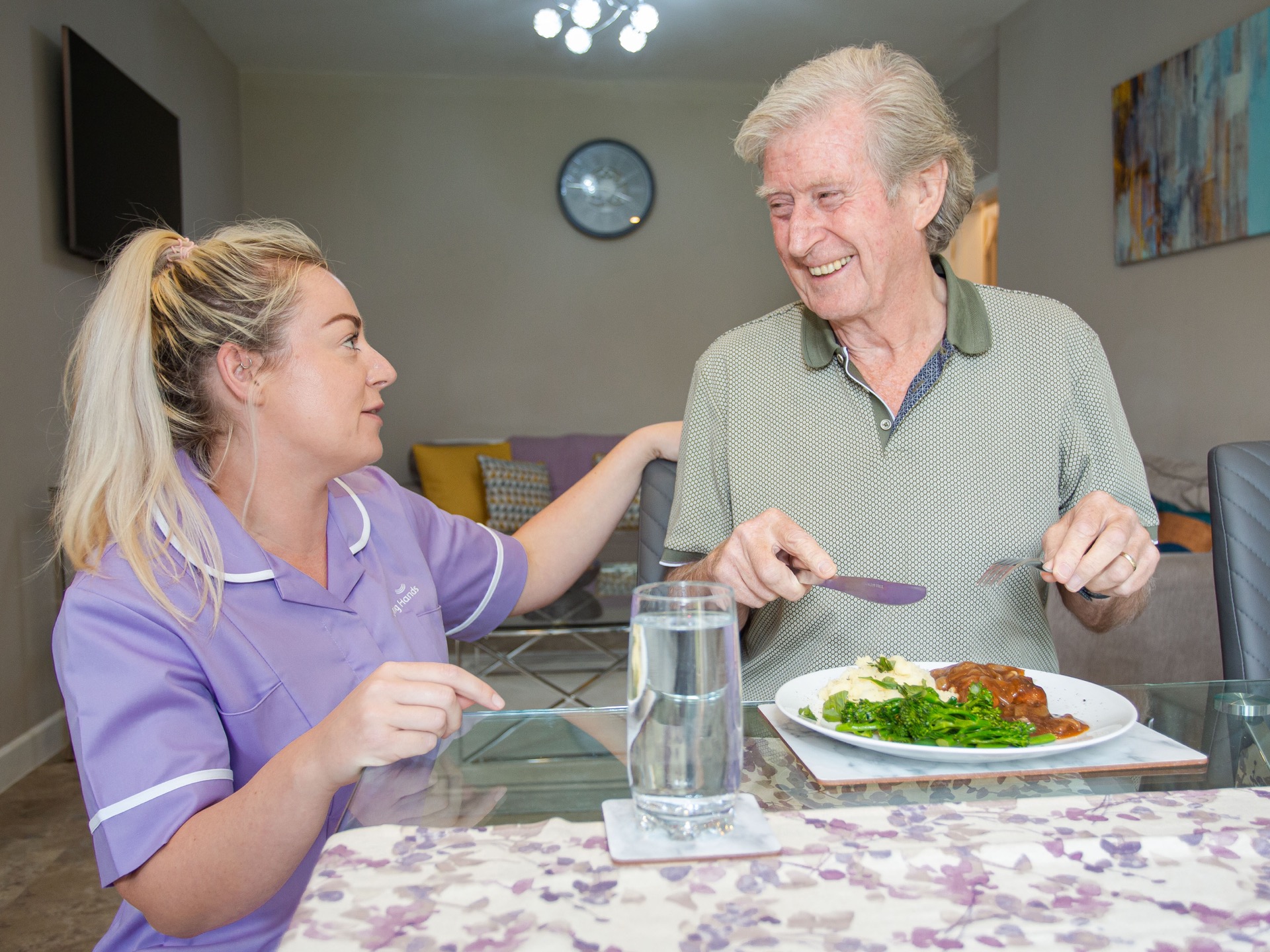
Planning elderly care in advance
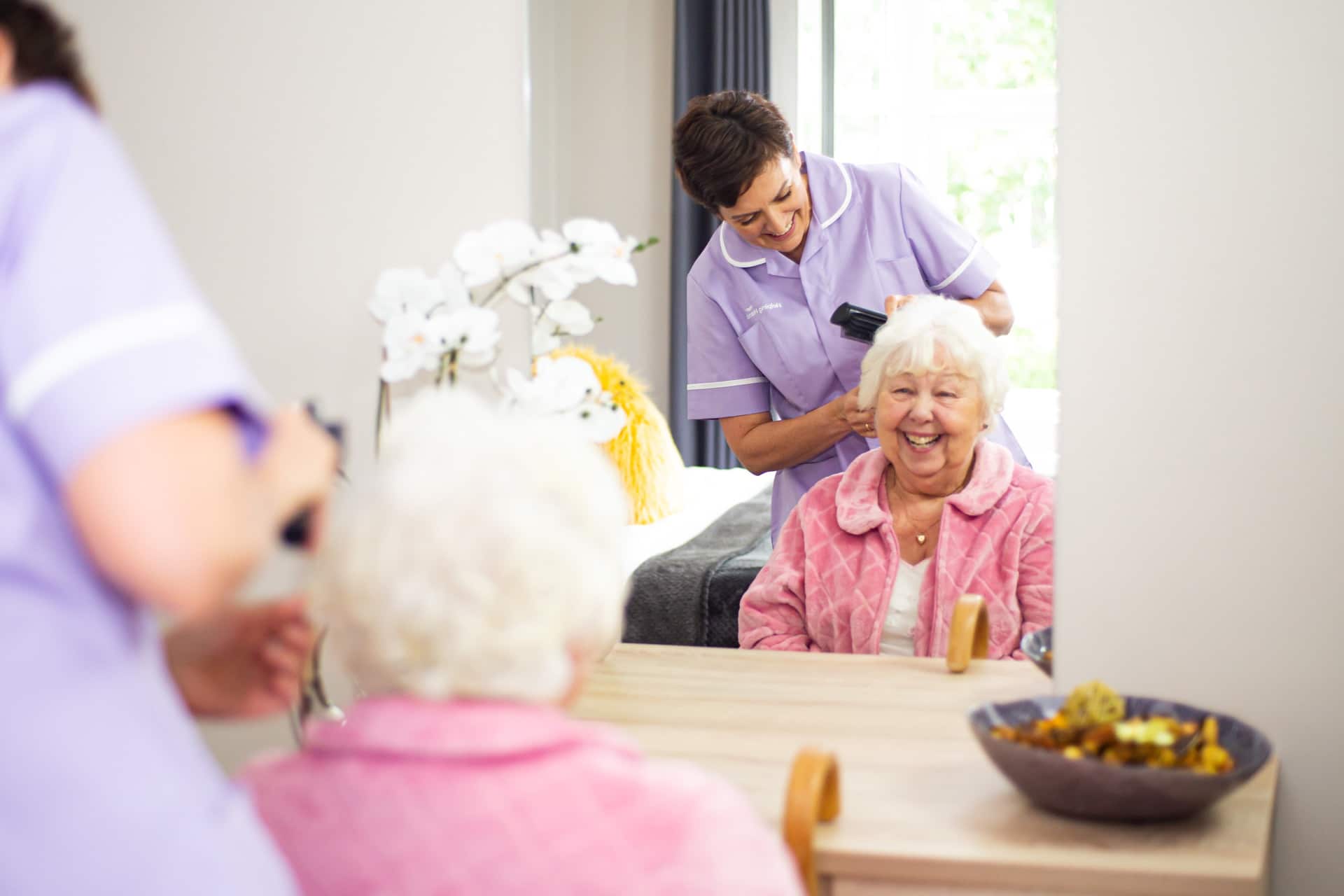
Some like to plan in advance for their health needs so they have peace of mind that everything will be catered for should they need support, whereas others may not want to admit that they need care at all. You may have tried to broach the topic of care with a loved one and it’s ended in them being quite resistant to the idea of having extra support, which can be quite common.
Preparing properly for a difficult conversation can really help when talking about getting your loved one the support they need but may initially be resilient to. It’s important that you calmly discuss why you think they may benefit from a bit of extra care and have an open two-way conversation to talk through how both of you are feeling.
The benefits of elderly care at home
There are lots of advantages of elderly home care for both you and your loved ones.
Elderly home care can be beneficial for both you, and also for your loved ones who are perhaps worrying about how you’re currently coping at home by yourself or with a spouse without any additional help.
Maintain your routines and hobbies
Whether you’re part of a club, love a board game with friends, go to church every week or enjoy a sunny walk, your carer can support you to maintain a normal life
See loved ones when you wish
You’ll be able to see family and friends at the times that suit you – whether visiting or hosting. Plus, you’ll get the added bonus of having a friendly companion in your home.
Stay on top of the housework
Your carer can help out with any aspects of the housework you’re struggling to complete, as well as preparing delicious, nutritious meals at the times that suit you
Flexible support
Elderly care at home provides you with a personalised, flexible support package which can be tailored to your specific needs and adapted accordingly if your situation changes
The types of elderly care we offer
We offer elderly care on both a visiting care and live-in care basis, depending on your support needs.
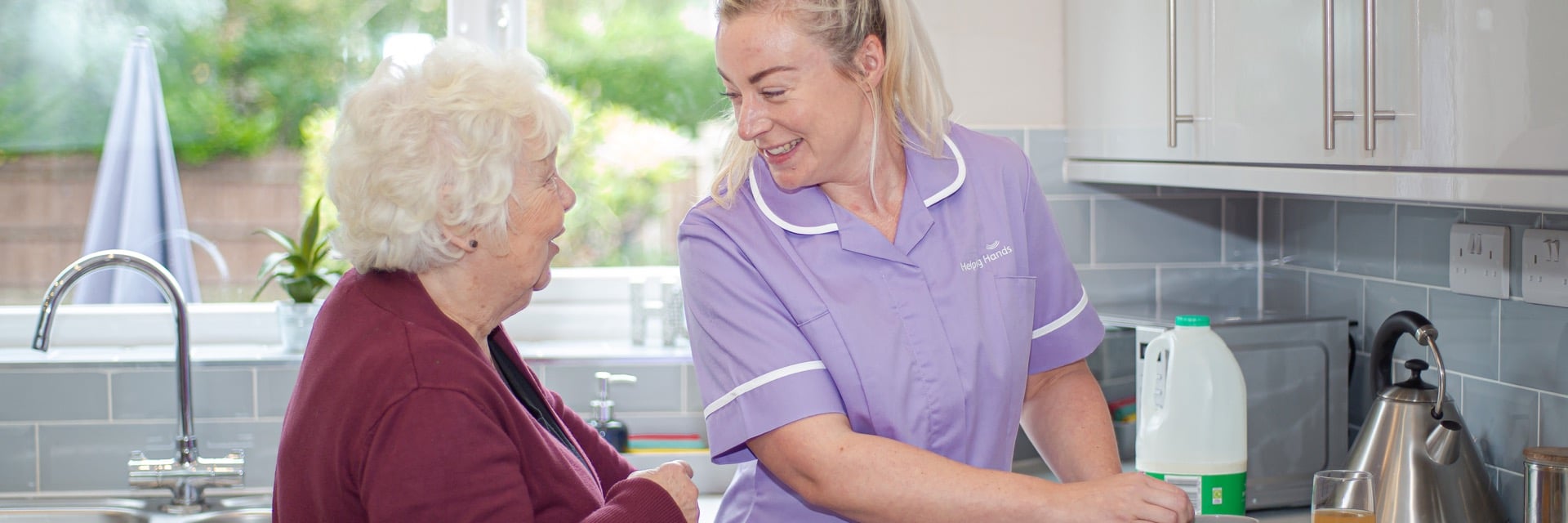
If you’d benefit from a bit of extra support throughout the week from a fully-trained carer, our visiting care plans might be ideal for you. Find out more about each type of care below.
Set your schedule
Personalised care plan
Visits from 30 minutes
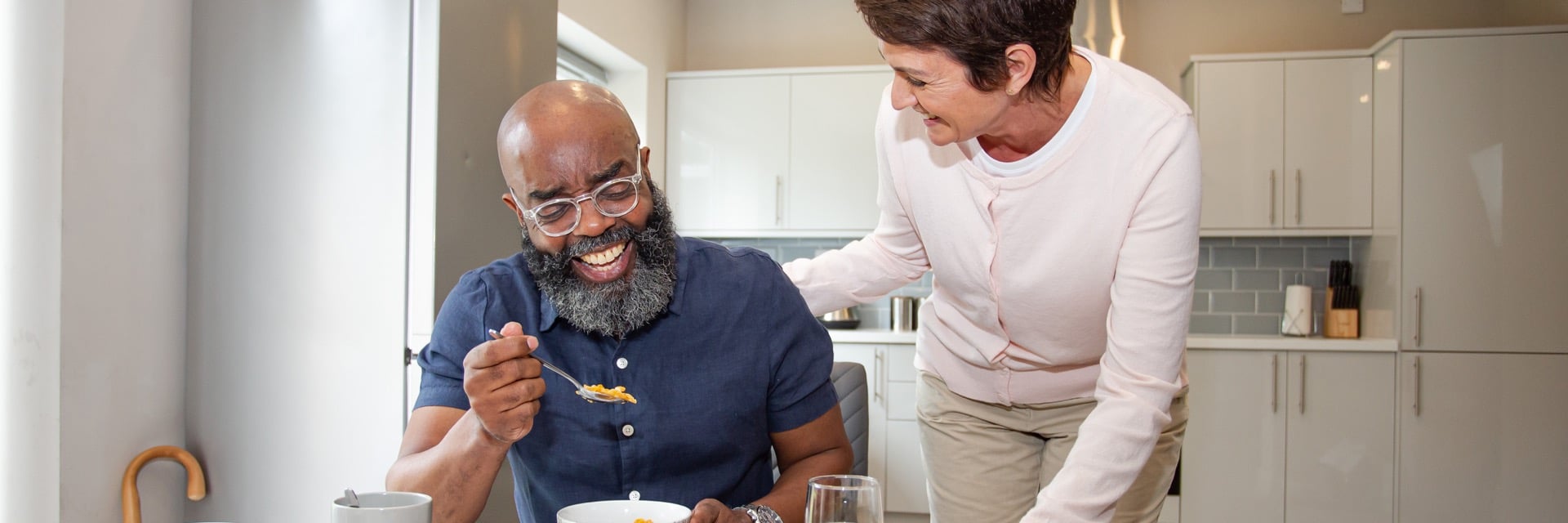
Offering a more comprehensive, round-the-clock support option, live-in care suits those living by themselves or with a complex condition.
Care at all times
Carer matched to you
Peace of mind
Elderly care from a managed home care service provider
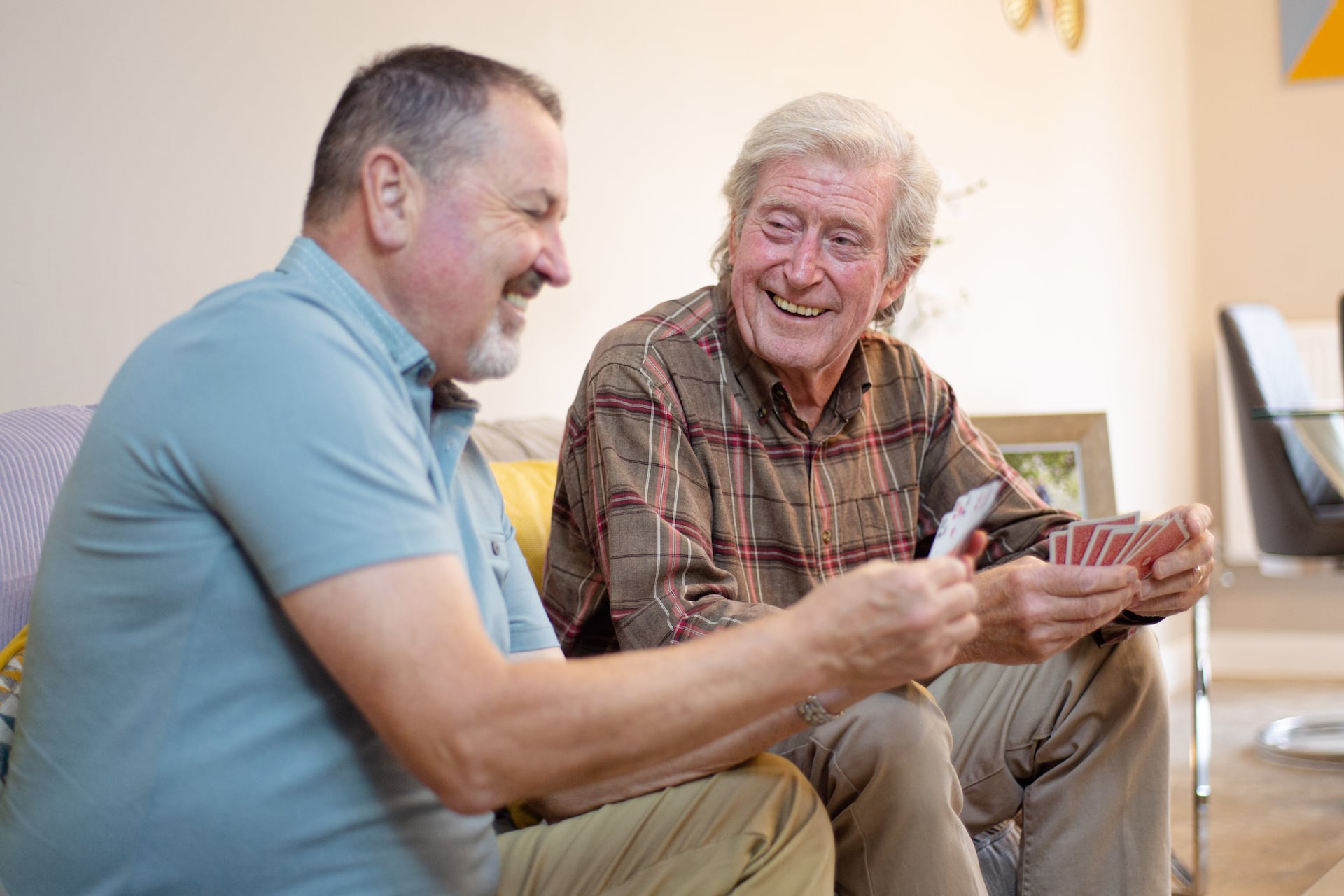
Helping Hands provide a fully managed care service, meaning we’ll handle every aspect of your care for you. If your regular carer is unable to visit you because they are unwell or unavailable, we will swiftly find a replacement to step in and provide the same high quality of care that you’re used to, without altering any of your routines. We also have an all-inclusive cost for your care instead of paying for each activity or task like you would with a care agency.
We ensure that all of our carers go through a thorough assessment and selection process, including our award-winning training programme. Furthermore, we look after all of their pay, paperwork and annual leave, which wouldn’t be the case if you were to choose a care agency.
Fully regulated by the CQC / CIW
Here at Helping Hands, our elderly care service is fully managed and regulated by the Care Quality Commission (CQC).
Helping Hands is a fully managed care provider that are fully regulated by the CQC and CIW, the governing bodies for care in England and Wales respectively.
What does regulation mean?
Being regulated by these two bodies means our care must meet certain criteria and standards
Why do we choose to be regulated?
We offer a regulated care service so that every customer can have full peace of mind
How does regulation affect my care?
Regulation means that care from Helping Hands will be reliable, consistent and industry-approved